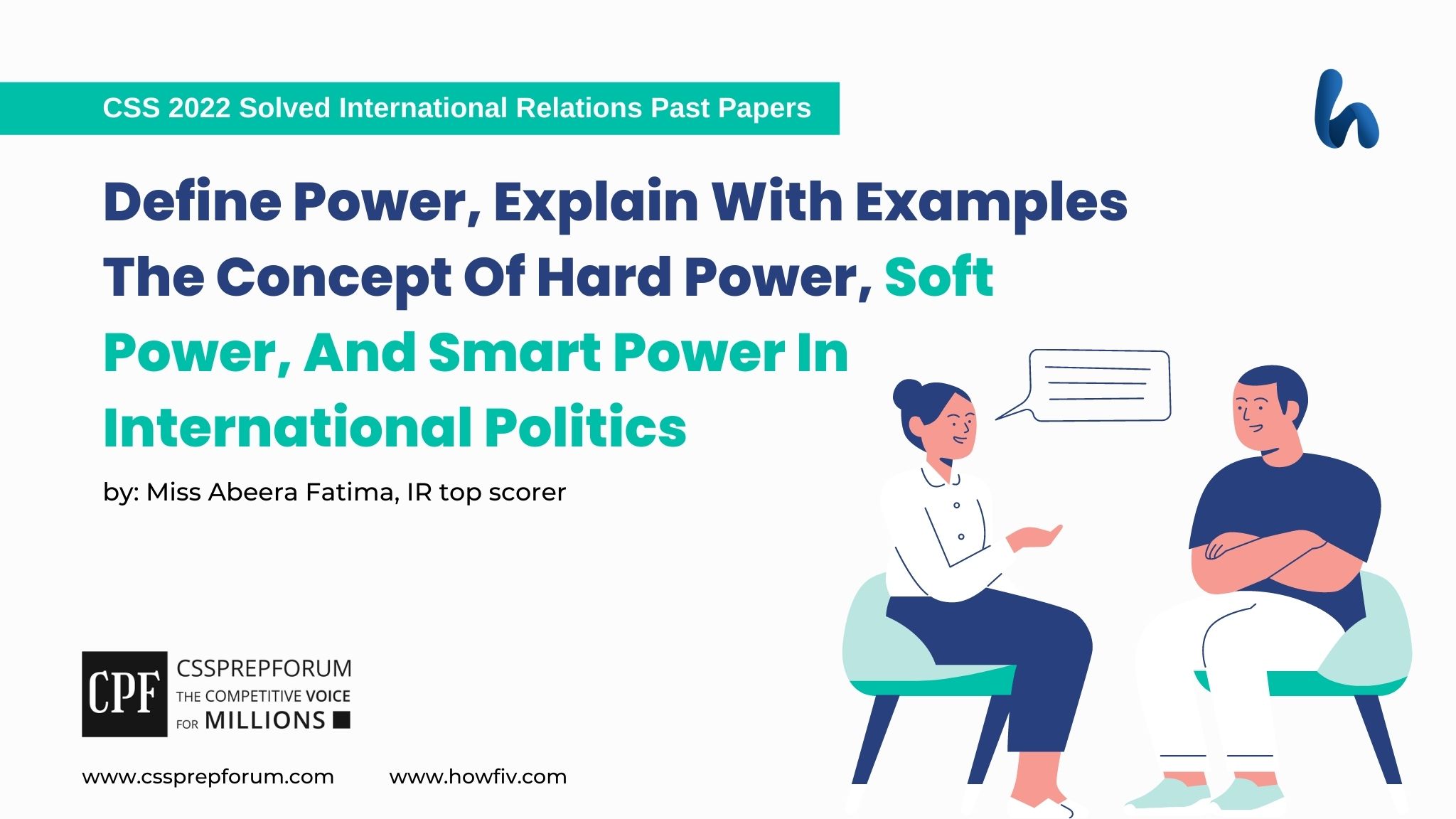Q5. Define power, Explain with examples the concept of hard power, soft power, and smart power in international politics. 2022

Power, in the context of international politics, refers to the ability of a state or an actor to influence and shape the behavior of other states or actors to achieve desired outcomes. It involves the capacity to assert one’s interests, values, and objectives in the global arena. Power can manifest in various forms, and three key concepts commonly discussed in international relations are hard power, soft power, and smart power.
- Hard Power: Hard power refers to the ability to influence others through coercive or material means, often involving military force or economic leverage. It relies on tangible and measurable elements of power, such as military capabilities, economic resources, and geopolitical influence. Examples of hard power include:
- Military Strength: A country with a strong military, advanced weaponry, and the ability to project force globally has significant hard power. For instance, the United States’ military capabilities, including its aircraft carriers, advanced fighter jets, and global military bases, demonstrate its hard power.
- Economic Influence: Economic strength and the ability to wield economic leverage can also be a form of hard power. For example, countries like China and the European Union, with large economies and the ability to exert economic pressure through trade, investment, and sanctions, possess significant hard power.
- Soft Power: Soft power refers to the ability to influence others through attraction, persuasion, and the appeal of one’s ideas, values, culture, and policies. It relies on intangible factors such as cultural values, ideology, diplomacy, and moral authority. Examples of soft power include:
- Cultural Influence: When a country’s cultural products, such as music, films, literature, and art, gain popularity and appreciation worldwide, it enhances its soft power. For instance, Hollywood movies and American popular culture have contributed to the United States’ soft power by disseminating its values and shaping global perceptions.
- Diplomacy and Public Diplomacy: Effective diplomacy, including diplomatic negotiations, public diplomacy efforts, and diplomatic initiatives, can enhance a country’s soft power. Diplomatic skills, dialogue, and the ability to build coalitions and consensus contribute to a nation’s influence in international affairs.
- Smart Power: Smart power, coined by political scientist Joseph Nye, combines elements of both hard power and soft power. It emphasizes the strategic and synergistic use of various instruments to achieve desired outcomes in international relations. Smart power recognizes that a combination of coercion, attraction, and persuasion can be more effective than relying solely on one form of power. Examples of smart power include:
- Humanitarian Aid and Development Assistance: Providing humanitarian aid and development assistance to other countries not only demonstrates soft power by fostering goodwill and gratitude but also incorporates hard power elements by advancing a country’s geopolitical interests and strategic objectives.
- Public-Private Partnerships: Leveraging the strengths and resources of both the public and private sectors is a form of smart power. Collaborative efforts between government entities, corporations, and non-governmental organizations (NGOs) can tackle complex global challenges effectively.
- Strategic Communication and Information Warfare: Effective communication strategies, including shaping narratives, countering disinformation, and using information technology, can be deployed as part of smart power approaches. By influencing public opinion and shaping perceptions, countries can achieve their objectives.
It is important to note that the use of hard power, soft power, and smart power strategies varies among countries and is context-dependent. Successful navigation of international politics often requires a combination of these power elements to achieve desired outcomes and promote national interests.